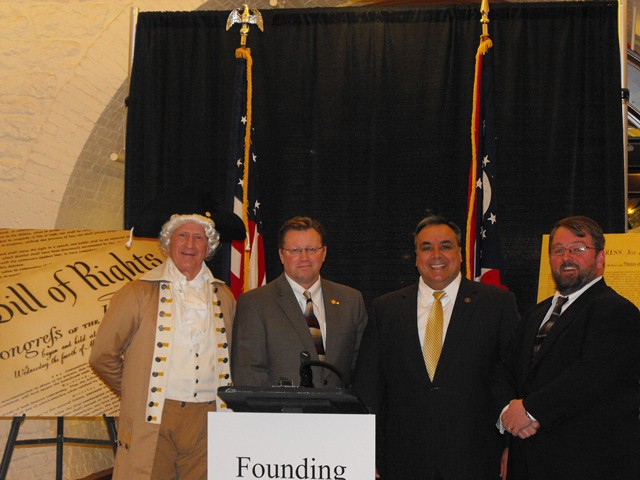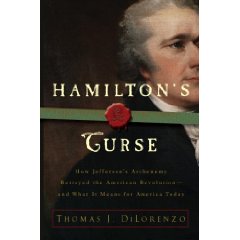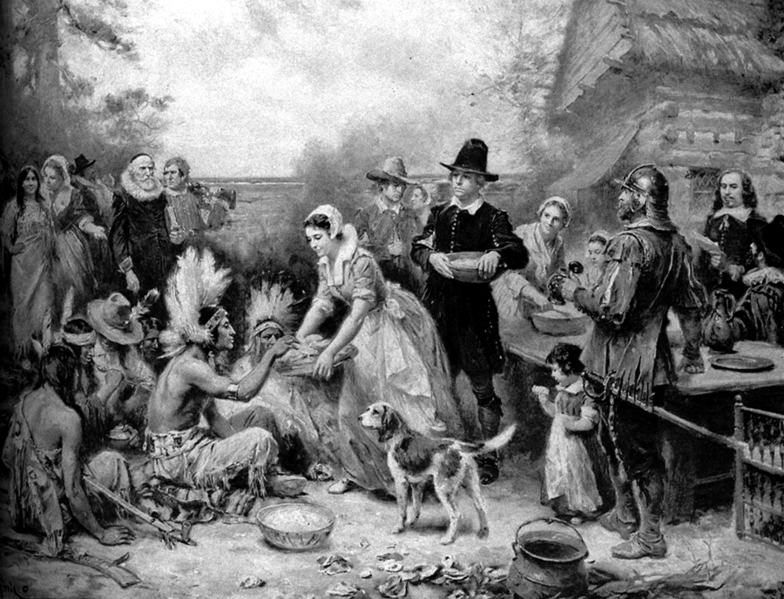 “…you won’t know where you’re going…” or so the saying goes. This sentiment is especially true when it comes to understanding and defending our form of government, establishing liberty under law. Amazingly, in Ohio, this education is something that it is going to take an action of the Ohio General Assembly to ensure students in schools receive.
“…you won’t know where you’re going…” or so the saying goes. This sentiment is especially true when it comes to understanding and defending our form of government, establishing liberty under law. Amazingly, in Ohio, this education is something that it is going to take an action of the Ohio General Assembly to ensure students in schools receive.
On Tuesday, February 22nd, a press conference was held at the Ohio Statehouse to announce the introduction of the “Founding of America Documents” bill, legislation that would require the teaching, in 9th-12th grade, of such important documents as the US and Ohio constitutions, the Declaration of Independence, the Northwest Ordinance, and the Federalist and Anti-Federalist papers. The goal of the legislation is to strengthen Ohio’s American History and Government standards put forth by the Ohio Board of Education, which currently does not require students learning the history of their own form of goverment in any depth whatsoever, receiving a score of 3 out of 10 from the Thomas B. Fordham Foundation’s survey “The State of State U.S. History Standards 2011”.
Institute for Principled Policy director Barry Sheets presented his supporting comments at this press conference. The Institute believes that students should be taught the importance of these historical documents, and will be working with sponsors Senator Tim Grendell and Representative John Adams to have this study begin earlier than the 9th grade.
Comments supporting the “Founding of America Documents” bill by Barry Sheets, Director, Institute for Principled Policy:
“Good morning. I am Barry Sheets, director of the Institute for Principled Policy, a non-profit public policy think tank. The Institute supports the introduction of this legislation, and would like to thank the legislative sponsors of this bill, and the organizations here today who are showing their public support for this common-sense issue.
The Institute supports the introduction of this legislation, and would like to thank the legislative sponsors of this bill, and the organizations here today who are showing their public support for this common-sense issue.
Yesterday was Presidents’ Day, and today we celebrate the birth of George Washington, the first President under the United States Constitution. We have our students celebrate this day, but they also must understand the document which gave us Presidents in the first place. This bill will have those founding documents taught beginning in 9th grade. This is a good thing, but the Institute would like to see it start even earlier, as early as the 4th or 5th grade level, and develop the foundation blocks for a study of the fundamental documents enumerated in the bill, along with other important documents such as the Mayflower Compact, the Fundamental Orders of Connecticut, the Virginia Declaration of Rights, the Articles of Confederation, among other key writings.
Recently, the American Council of Trustees and Alumni commissioned a study of over 700 American colleges and universities relating to their teaching of our American founding documents. Their findings are startling and disturbing. The survey found that less than 20% of the public institutions require American History, and less than 6% of the private institutions do so. Only 140 schools even required a survey course; 600 schools didn’t. Therefore, if we believe our students will be o.k. if they don’t learn about our founding and form of government in high school because they will surely get it when they go to college (among those students who actually do), we are fooling ourselves and doing these and all students a grave disservice by leaving them ignorant of the history of our American experiment in liberty.
This bill is necessary, and will go far to help encourage students to become engaged citizens. Perhaps we will be able at some point in the future to correct the out of balance practices in our goverment if students read and study these materials, such as this from Federalist 45, penned by James Madison:
‘…powers delegated by the proposed Constitution to the federal government, are few and defined. Those which are to remain in the state governments are numerous and indefinite. The former will be exercised principally on external objects, as war, peace, negotiations, and foreign commerce. The powers reserved to the several states will extend to all the objects, which, in the ordinary course of affairs, concern the lives, liberties and properties of all the people; and the internal order, improvement, and prosperity of the state.’
The Institute for Principled Policy stands firmly in support of this legislation, and will work with the sponsors in testimony and advocacy toward passage of this bill. Thank you.”




 “Conservatives who genuinely believe in limited government are not generally exposed to the Hamilton who at the Constitutional Convention called for a king-like permanent president and who subsequently dedicated himself to undermining the limits on governmental power laid out in the very Constitution he championed in the Federalist Papers.” This quote from page 171 of the book Hamilton’s Curse is a bit of an understatement, as most Americans, conservative and otherwise, are generally exposed to the results of Hamilton’s efforts in our government, our systems of education, business and finance, to name but a few. The bowl of Hamilton’s poisoned fruit is spilling over with plenty.
“Conservatives who genuinely believe in limited government are not generally exposed to the Hamilton who at the Constitutional Convention called for a king-like permanent president and who subsequently dedicated himself to undermining the limits on governmental power laid out in the very Constitution he championed in the Federalist Papers.” This quote from page 171 of the book Hamilton’s Curse is a bit of an understatement, as most Americans, conservative and otherwise, are generally exposed to the results of Hamilton’s efforts in our government, our systems of education, business and finance, to name but a few. The bowl of Hamilton’s poisoned fruit is spilling over with plenty.